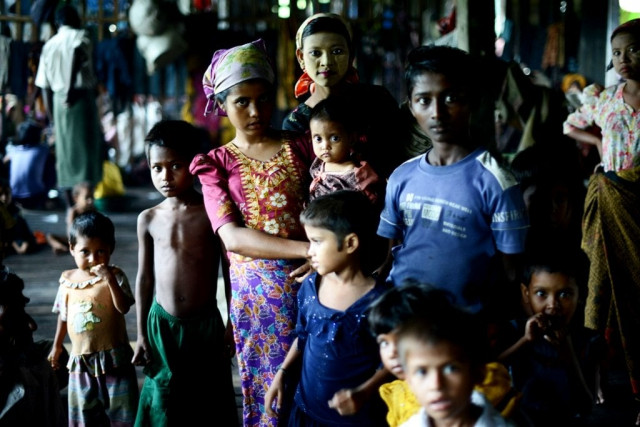Myanmar denies using chemical weapons on rebels
The United States and the UN have voiced concern over the air raids.

Civil war has plagued parts of the country formerly known as Burma since it won independence from Britain in 1948. PHOTO: AFP/FILE
"Our military never uses chemical weapons and we have no intention to use them at all. I think the KIA (Kachin Independence Army) is accusing us wrongly," presidential spokesman Ye Htut said.
The rebels on Wednesday told AFP that the army had stepped up its operations in recent days, allowing troops to take territory in a push towards the KIA stronghold of Laiza on the border with China.
"It is already three days (they have) used chemical weapons (and) they are able to occupy very important posts," KIA spokesman James Lum Dau told AFP.
He said there was an intense heat and soldiers "lost consciousness" when the shells exploded.
"Around that area everybody suffers," he added.
AFP was not able to verify the claims, which follow the recent use of air strikes by the government against the rebels in the resource-rich area.
Tens of thousands of people have been displaced by the conflict since June 2011, when a 17-year ceasefire between the government and the KIA broke down.
The rebels made a similar accusation that the army had used chemical weapons in late 2011.
The Kachin clashes, along with communal unrest in the western state of Rakhine, have marred optimism about dramatic political changes since Myanmar's widely praised emergence from decades of army rule in early 2011.
The United States and the UN have voiced concern over the air raids.
Civil war has plagued parts of the country formerly known as Burma since it won independence from Britain in 1948.
Myanmar's quasi-civilian regime has reached tentative peace deals with other major ethnic rebel groups, but an agreement with the Kachin has proved elusive.
President Thein Sein, a former general, in December 2011 ordered an end to military offensives against the rebels and continued hostilities have led to doubts over his ability to control the powerful armed forces.
Ye Htut reiterated government assertions that the army was only firing "in self-defence".
"We always open the door for peace," he said.



















COMMENTS
Comments are moderated and generally will be posted if they are on-topic and not abusive.
For more information, please see our Comments FAQ